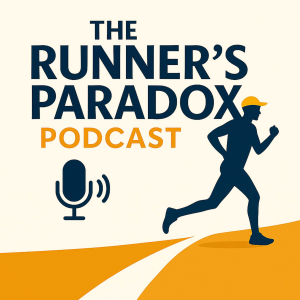
4 days ago
Mile 4: The Act of Running
Mile 4: The Act of Running
What happens when running stops being about performance and becomes a way of being?
What if running was not simply an act of moving forward but a laboratory for consciousness itself?
In this episode, we step into Mile 4, the moment where running ceases to feel mechanical and begins to reveal itself as a deeply embodied practice. We explore how attention transforms pain into flow, how the nervous system reconfigures itself through rhythm, and how dynamic environments awaken the body’s sensorimotor intelligence. Drawing on interoception research, somatic psychology, and Thomas Csordas’s concept of somatic modes of attention, this is a rich and reflective journey into the inner landscape of running. Each footstrike becomes a microcosm of presence and each breath a quiet rebellion against distraction. This is running as you have never considered it before.
Get the book at therunnersparadox.com
⸻
New Evidence Introduced (Not in the Book)
Interoceptive awareness and the runner’s high
Recent studies suggest that the runner’s high may depend less on endorphins and more on interoception, the brain’s capacity to sense internal states such as heartbeat and breath. A 2024 review highlights how improving interoceptive ability enhances emotional regulation and flow experiences, supporting its relevance to endurance running (Neuroscience and Biobehavioral Reviews, 2024).
Dynamic environments and sensorimotor integration
Outdoor running engages proprioceptive and vestibular systems more fully than treadmill running, according to a 2021 comparative study. Changing terrain demands constant recalibration of the body, awakening sensorimotor networks in ways that static environments cannot (Journal of Motor Behavior, 2021).
Somatic psychology and polyvagal regulation
Emerging research shows that rhythmic, repetitive movement activates the vagus nerve, shifting the body from sympathetic arousal to parasympathetic calm. This mechanism may explain why long-distance running helps process emotional states such as grief and anxiety (Frontiers in Psychology, 2025).
Phenomenology of movement and somatic literacy
Building on Csordas’s somatic modes of attention, recent phenomenological studies explore how repetitive physical activity develops embodied awareness. These findings suggest that running cultivates a fluency in reading and responding to bodily sensations (Phenomenology and Cognitive Science, 2023).
No comments yet. Be the first to say something!